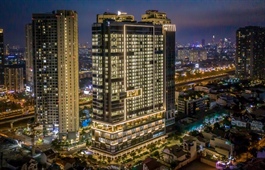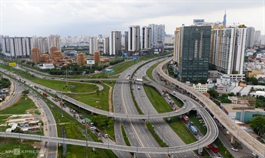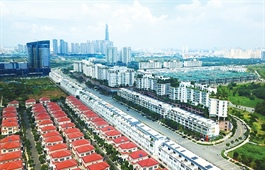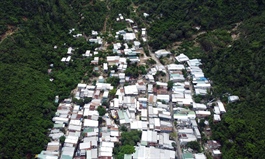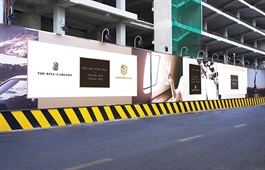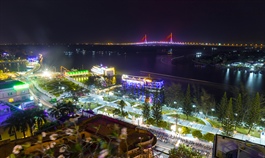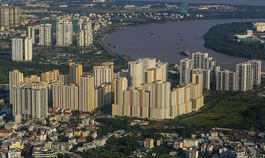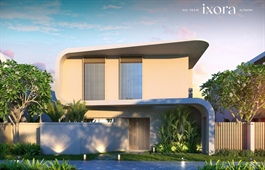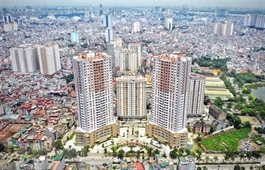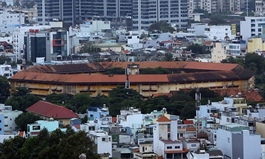Affordable housing on the verge of extinction
Affordable housing on the verge of extinction
Affordable housing at prices of up to VND2 billion ($86,900) has gradually disappeared from the Vietnamese market.

Apartments in the eastern part of Ho Chi Minh City. Photo by VnExpress/Quynh Tran.
|
For instance, grade B and C apartments used to account for 78 percent of supply in HCMC in 2017, according to real estate consultancy DKRA Vietnam. But last year 69 percent of the supply comprised of grade A units, and there was no new grade C apartment project at all, a situation that persisted in the first quarter of 2021.
Apartments priced under $1,500 per square meter are classified as grade C, those priced $1,500-2,500 are grade B, and those above $2,500 are grade A apartments, according to real estate consultancy Jones Lang LaSalle.
The average price of grade C apartments doubled from around VND16 million per square meter in 2013 to VND32 million in 2020, DKRA said. It has risen by another 5-10 percent in 2021.
According to the Ho Chi Minh City Real Estate Association (HoREA), 70 percent of apartment supply in 2020 was in the high-end segment, and only 163 units were in the affordable segment, equivalent to 1 percent of the total number entering the primary market.
It has become impossible to find apartments priced at below VND35 million per square meter in HCMC.
Even in its neighboring provinces like Binh Duong and Dong Nai, prices have shot up to VND33-45 million.
Le Hoang Chau, chairman of HoREA, said an apartment project initially offered at VND30-33 million per square meter is now sold at VND50-55 million, making buying difficult for people who need an apartment to live in.
In Hanoi, the majority of new projects in 2020 were sold at over VND30 million, with lower prices only found in outlying districts like Ha Dong, Hoai Duc and Gia Lam, where they cost VND17-22 million.
There were some social housing projects in Long Bien District at VND16-19 million.
Last year 20 new housing projects entered the Hanoi primary market, according to data from the Vietnam Association of Realtors (VAR). This low supply kept prices high.
Tran Khanh Quang, CEO of Viet An Hoa Real Estate Investment JSC, told local media that the complex procedures involved in acquiring land for real estate projects limits housing supply and forced developers to increase prices. Meanwhile, demand is high, especially from speculators.
Pham Lam, deputy chairman of VAR, said there has been land fever in the beginning months of the last three years in some places where speculators spread baseless rumors about government development plans there and even forged documents to back up their claims. Prices rose by hundreds of millions of dong, even billions, for land plots as a result, he said.
"Another reason for the surging property prices is the high expectation people have that they will rise in future, especially since the economy has been reviving strongly after the pandemic," he said.
Nguyen Le Ngoc Hoan, a lecturer in the finance and banking faculty at the HCMC Open University, said the Vietnamese property market is rife with speculation, with 60-70 percent of HCMC apartments being bought as an investment or for speculation and not for living in.
He said the government needs to slap high property taxes to prevent speculation.
"The more properties people own, the more taxes they should have to pay. The tax on the second unit must be higher than the first. High taxes should be imposed on properties that are left vacant, whether apartment, house or land."



